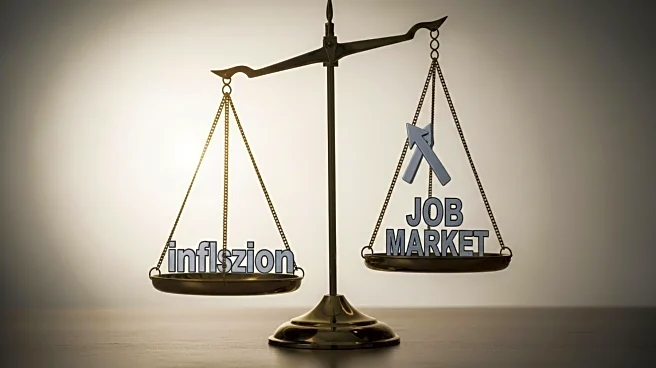What is the story about?
What's Happening?
The University of Michigan's consumer sentiment index has shown a decline, dropping to 55.4 in September from 58.2 in August. This decrease reflects growing concerns over rising inflation and a weakening job market. The survey highlights that tariffs remain a significant concern for consumers, with many expressing unease about trade policies. The sentiment index is now 21% lower than a year ago, indicating a broader economic anxiety among Americans.
Why It's Important?
The decline in consumer sentiment suggests potential challenges for the U.S. economy, as consumer confidence is a key driver of economic activity. Rising inflation and job market instability could lead to reduced consumer spending, impacting businesses and economic growth. The situation also underscores the complexities of trade policies and their effects on consumer perceptions and economic stability.
What's Next?
The Federal Reserve is expected to respond to these economic indicators by adjusting interest rates, with potential rate cuts anticipated in upcoming meetings. This monetary policy shift aims to stimulate economic activity and address inflation concerns. The evolving economic landscape will require careful monitoring by policymakers to balance growth and stability.
Beyond the Headlines
The sentiment index reveals a growing economic divide, with higher-income Americans maintaining optimism while lower and middle-income groups face increased financial pressures. This disparity highlights the need for targeted economic policies to address inequality and support vulnerable populations.
















